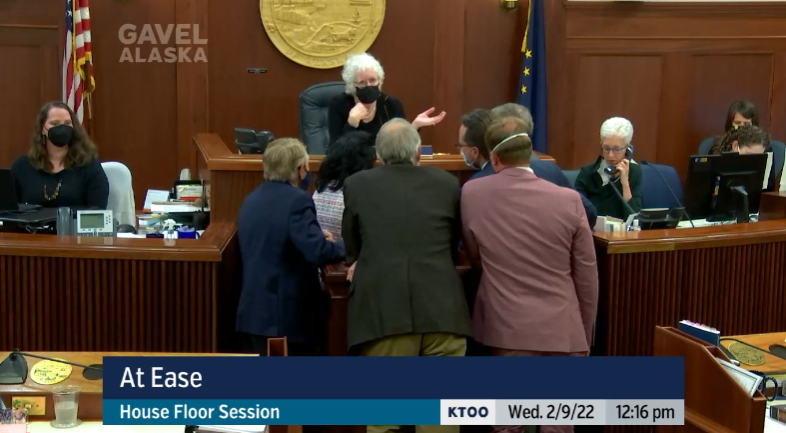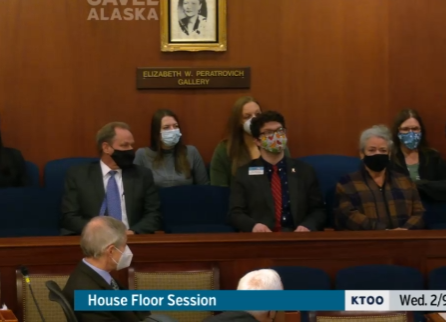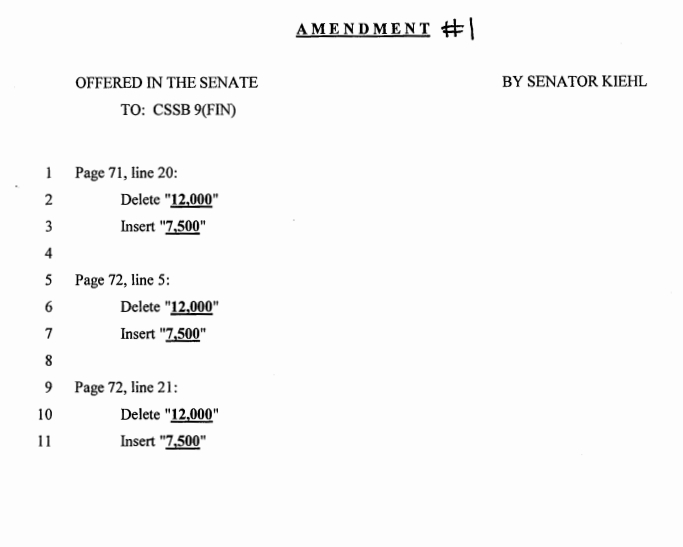
The 2022 Alaska State of the Judiciary is underway. Delivering his first State of the State is Chief Justice Daniel Winfree. He notes it may be his last given the age limits for the Alaska Supreme Court.
w3.akleg.gov/includes/_play…
#akleg
w3.akleg.gov/includes/_play…
#akleg

Winfree: I was one of the young ones 50 years ago criticizing the establishment and now I'm part of the establishment. I find myself wondering why we haven't made more progress.
Winfree is the first Alaska-born Supreme Court Chief Justice, has experienced all the political establishments and governors, the good and the bad.
"Alaska still stands."
"Alaska still stands."
Winfree: "We must never fail to respect to remain the integrity of the three branches of government."
(A particularly pointed line given Dunleavy's attack on the Judiciary's independence and the independence of the courts)
(A particularly pointed line given Dunleavy's attack on the Judiciary's independence and the independence of the courts)
Winfree says Judges are people, too, but they strive to not be influenced by the politics or the prevailing public opinion.
"That is what the rule of law is all about. Our system of government will fail if judges rule in a litigant's favor because who that litigant is."
"That is what the rule of law is all about. Our system of government will fail if judges rule in a litigant's favor because who that litigant is."
He reflects on the impact of the pandemic. He says that things changed in order to preserve and protect the public health but that priority hearings "never stopped."
He moves onto the issue of criminal jury trials, which have been on hold for much of the pandemic. He says "We couldn't have trials" while keeping people safe and also preserving the rights of everyone involved.
Winfree says the Delta and Omicron variants made restarting jury trials difficult. He says since January, they've had 25 criminal jury trials completed or in progress.
He says it's a pace that would actually be higher than pre-pandemic years.
He says it's a pace that would actually be higher than pre-pandemic years.
(Also, I had jury duty last week but was not called.)
Winfree notes that the typical jury trial rate is only 2-3% with most ending in prosecution dismissal and plea bargains. He says that dismissals and plea bargains dropped tremendously during the pandemic.
Winfree says there's a general perception that the court is to blame for a backlog in child of need of aid cases. He says that's not the case from the people in the trenches, noting that agencies are overburdened.
"The court is always ready to hear priority cases."
"The court is always ready to hear priority cases."
Aside from the pandemic, Chief Justice Winfree talks about the other initiatives the court system is offering to Alaskans such as resources that help people navigate through the legal system and other self-help services.
Pivoting to the budget, Winfree talks about a request to respond and prepare for cyberattacks.
He notes that last year's cyberattack was identified quickly, minimizing damage and no personal information was leaked.
He notes that last year's cyberattack was identified quickly, minimizing damage and no personal information was leaked.
The court is also seeking funding to reopen the courts on Friday afternoons. They closed six years ago, saving $2M annually. It's been a sticking point with the Legislature, and he says they're looking for a measured return to the full work week.
Chief Justice Winfree references an Alaska Constitutional Convention resolution for its young people. I went to google it to find it in the meeting minutes of a 2006 legislative hearing quoted by precisely the person you'd expect: 

Justice Winfree after reading off the above resolution: "So, to Alaska's children: Be concerned, be active, be involved in government. You, too, can be governor, a legislator or a judge, or a justice. Live your dreams and make Alaska and even better place."
He closed by saying that it has been a great honor to be able to speak to the Legislature and to serve Alaska.
• • •
Missing some Tweet in this thread? You can try to
force a refresh














